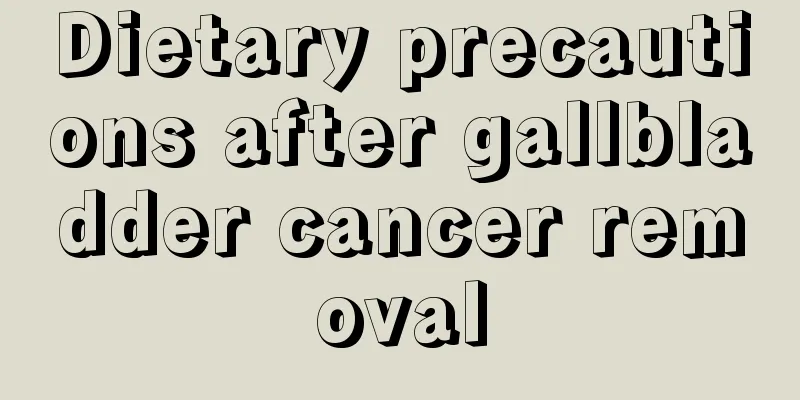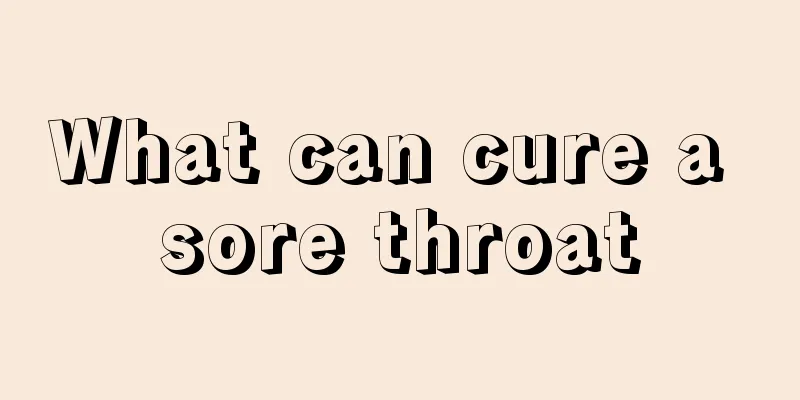Dietary precautions after gallbladder cancer removal

|
The gallbladder is the place where bile is stored in the human body. It continuously stores and concentrates the bile secreted by the liver. When eating, the gallbladder contracts and discharges the concentrated bile into the duodenum to help digest fat. If the gallbladder has to be removed due to various reasons such as cholecystitis, stones, polyps, gallbladder cancer, etc., people will face changes in their physiological state caused by the lack of bile regulation. At this time, bile will continue to enter the duodenum, but people cannot get enough bile to help digestion when eating, and some symptoms of indigestion will appear, such as abdominal discomfort, bloating, diarrhea, etc. After the gallbladder is removed, these compensatory changes of the body are to adapt to the needs of digestion. This process takes about 2 to 3 months. During this period of compensation and adaptation, the function of digesting and absorbing fat will be temporarily affected to a certain extent. In order to adapt to this change, people who have had their gallbladder removed should appropriately limit the amount of fat they eat (the so-called low-fat diet). They can adopt the method of eating small meals frequently, and especially should not eat too much animal fat food at one time, such as fat meat, pig's trotters, etc. After 2 months, according to the reaction to food, you can also gradually increase some fat food appropriately, from less to more. If you feel uncomfortable, you can reduce it or temporarily stop eating it as appropriate. After a period of adaptation, you will not have any reaction to fat food. In addition, 40% to 45% of patients with cholecystitis who have undergone cholecystectomy generally have satisfactory results and their symptoms disappear. However, a small number of patients still have the original symptoms after surgery, or the original symptoms recur after a period of relief, and some have new symptoms, which are collectively referred to as "post-cholecystectomy condensation syndrome." Patients with post-cholecystectomy syndrome experience gastrointestinal symptoms and systemic symptoms such as upper abdominal pain, colic-like attacks, jaundice, chills and fever, nausea, vomiting, depression, anxiety, and progressive weight loss. 2%-8% of people experience this symptom after cholecystectomy. After surgery, the diet principle is low in calories, fat, protein, and vitamins. Control calories to lose weight, control the total amount of food intake, and eat until you are 70% to 80% full at each meal (especially dinner). Keep your weight within the ideal range, and those who are overweight or obese should lose weight. The first 3 months after surgery are particularly important. 1. Reduce fat and cholesterol. Pay attention to the reasonable combination of meat and vegetables, and try to reduce the fat and cholesterol content in food. After cholecystectomy, due to the lack of sufficient concentrated bile, excessive intake of fat and cholesterol will cause digestive disorders, and severe cases will have fatty diarrhea, leading to malnutrition. It is recommended to use vegetable oil and avoid animal oil. Try to eat less thick broth, thick chicken soup, thick fish soup and other foods, and reduce the intake of high-fat nuts such as peanuts, melon seeds, walnuts, almonds, pistachios, etc. Strictly limit animal offal, egg yolks, squid, sardines, animal brains, fish eggs, crab roe and other foods with high cholesterol. Eat no more than four eggs a week, avoid overeating or excessive hunger, and try to eat small meals frequently. 2. Pay attention to the cooking method. Cooking should be light, preferably stewing, steaming, simmering, etc. Avoid frying, grilling, smoking, half-cooked cooking, and use as little seasoning as possible to adapt to the changes in bile duct function after surgery and reduce the burden on the digestive system. 3. Supplement high-quality protein. Supplementing with adequate low-fat, high-quality protein is beneficial to repair liver cell damage caused by cholecystitis and cholelithiasis. You can choose foods such as fish, shrimp, poultry, tofu and low-oil soy products. 4. Supplement dietary fiber. Eat more foods high in dietary fiber, including corn, millet, sweet potatoes, oats and other whole grains, to promote bile excretion. 5. Eat enough vegetables and fruits. The daily vegetable intake should be greater than 500 grams, and there should be at least 2 kinds of fruits to supplement vitamins, minerals and dietary fiber, and to reduce the formation of cholesterol and the absorption of fat and sugar. |
<<: Nursing measures to prevent gallbladder cancer from worsening
>>: What are the routine nursing care for gallbladder cancer
Recommend
Should patients with advanced lung cancer wear masks?
Do patients with advanced lung cancer need to wea...
Glutamyl transpeptidase 120
Glutamyl transpeptidase is related to the metabol...
Experts explain: Smoking is closely related to the cause of lung cancer
Lung cancer is a malignant tumor with a high inci...
Ovarian tumors can be passed down to the next generation
Can ovarian tumors be inherited? According to gyn...
How to store and preserve eggs
Relatively speaking, the shelf life of eggs is sl...
What to eat during Qingming Festival, are you eating right?
Qingming Festival is a solar term as well as a fe...
Can bladder cancer surgery be cured? How to prolong survival after bladder cancer surgery
There is currently no way to completely cure blad...
The difference between young ginger and fresh ginger
Ginger is a very important cooking ingredient in ...
How to treat spots on the face, teach you 7 treatment methods
As they grow older, many girls have spots of vary...
What is the best way to soak your feet
Foot soaking is something people often do in thei...
How to store dry bird's nest
There are two types of bird's nests, dry and ...
The harm of gel water
Gel water is a relatively commonly used cosmetic....
What should I do if the spots and scabs fall off
If you have spots on your face, it will have a gr...
What should I do if I have cracked soles of my feet?
Friends with cracked soles should soak their feet...
There are five main symptoms of hidradenitis
Hidradenitis generally occurs in the subcutaneous...









